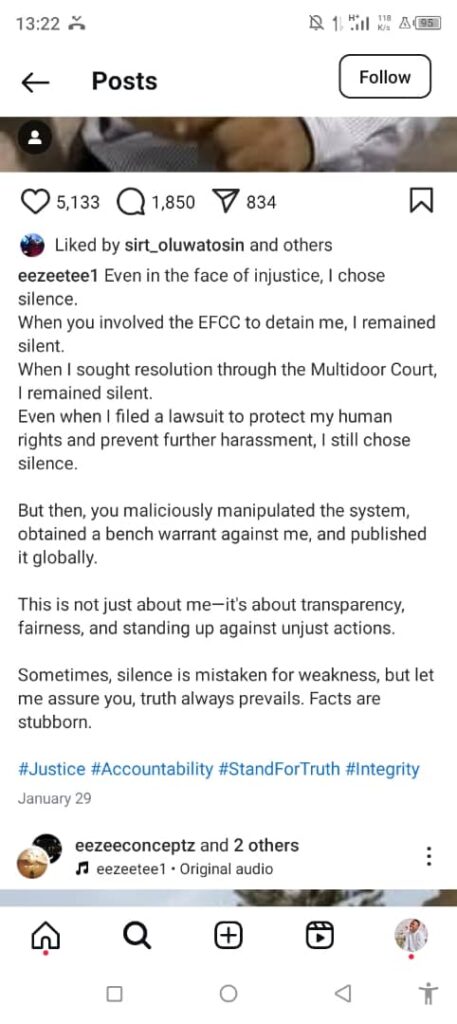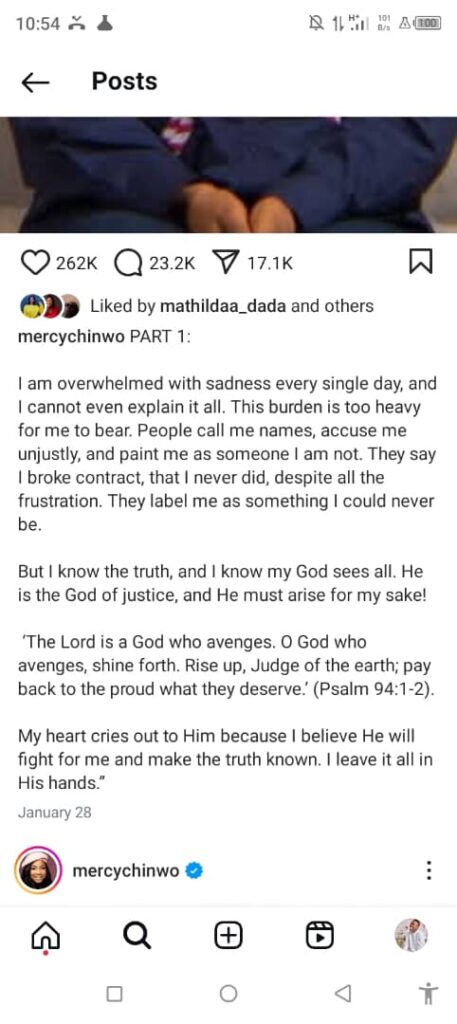The music industry has long been marked by conflicts between artists and record labels, spanning different genres and continents.
While Nigerian gospel artist Mercy Chinwo recently made headlines due to contractual disputes with her former label, these issues are neither new nor exclusive to the African music scene.

Globally, similar disputes have played out, highlighting the recurring challenges in artist-label relationships.
A Global Phenomenon: Artists vs. Labels
1. Prince vs. Warner Bros. (1990s)
The legendary artist Prince famously fought against Warner Bros., demanding control over his music and artistic freedom. In protest, he changed his name to an unpronounceable symbol and appeared with “Slave” written on his face, emphasizing his dissatisfaction with label restrictions.
2. Taylor Swift vs. Big Machine Records (2019-Present)
Pop superstar Taylor Swift has been in a long-running dispute with Big Machine Records over the ownership of her master recordings. The label sold her catalog to Scooter Braun’s company without her consent, leading Swift to re-record her old albums as “Taylor’s Versions” to regain control of her music.
3. Kesha vs. Dr. Luke & Sony (2014-Present)
Kesha’s battle with producer Dr. Luke and Sony Music was both legal and personal. The singer accused Dr. Luke of abuse and sought to be released from her contract. The case became a widely publicized legal and ethical debate about artist rights and industry power dynamics.
4. Lil Wayne vs. Cash Money Records (2015-2018)
Rapper Lil Wayne sued Cash Money Records for $51 million, alleging the label withheld money owed to him and delayed the release of his album Tha Carter V. After a long legal battle, the dispute was settled, and Wayne regained control of his music.
5.JoJo vs. Blackground Records (2000s-2010s)
R&B singer JoJo was trapped in a restrictive contract with Blackground Records, which refused to release her music. After years of legal battles, she finally won the rights to her music and re-recorded her early albums, similar to Taylor Swift’s strategy.
6. Kizz Daniel vs. G-Worldwide (2017-2018)
Nigerian singer Kizz Daniel (formerly Kiss Daniel) had a highly publicized legal battle with his former label, G-Worldwide Entertainment. His contract allegedly restricted him from collaborating with other artists and limited his earnings. Kizz Daniel eventually won the case, rebranded, and regained control of his career, setting an example for African artists facing contractual restrictions.

Lessons for Artists and Record Labels
The history of artist-label conflicts shows a clear pattern: disputes often arise from issues of contract clarity, music ownership, financial transparency, and creative control. Whether in secular or gospel music, the following lessons remain relevant:

Contracts Matter
Artists must fully understand the terms before signing any deal. Legal counsel should be involved to ensure fairness.
Ownership and Royalties
Clear agreements on music ownership and revenue sharing can prevent disputes.
Communication and Mediation
Open discussions between artists and labels can help resolve conflicts before they escalate publicly.
Ethical Label Practices
Record labels must prioritize fairness and support artists rather than exploiting their talents for profit.
Christian Labels: Protecting the Body of Christ
For gospel music labels, the stakes are even higher. Public disputes like the Mercy Chinwo vs. EeZee Conceptz saga can create negative impressions of the Christian community. To avoid this:
Christ-centered Conflict Resolution
Biblical principles of reconciliation (Matthew 18:15-17) should guide dispute resolution.
Integrity Over Profit
Christian labels must operate with transparency and fairness, reflecting the values they promote.
Avoiding Public Drama
Handling disputes privately helps prevent unnecessary division and controversy within the church community.
While record label conflicts are not new, learning from past and present cases can help artists and labels navigate the music industry more ethically and professionally. Whether in gospel or secular music, mutual respect, clear contracts, and fair dealings remain essential for a thriving industry.

